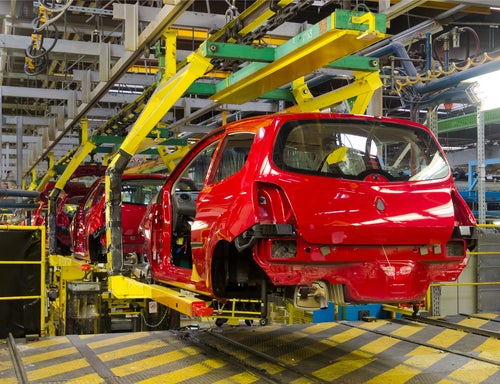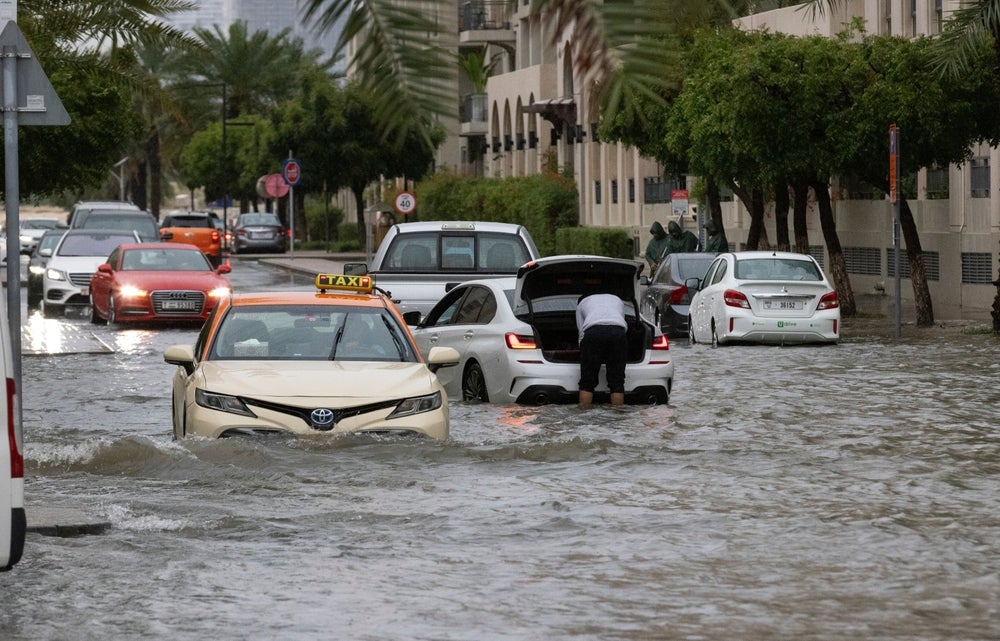
While first and foremost a humanitarian crisis, the Russian invasion of Ukraine risks adding materially to existing economic and supply challenges for the global economy, just as the world was emerging from the shadow of the COVID pandemic. Once again automotive supply chains have shown their fragility. David Leggitt reports.
Ukraine, long seen as a relatively safe place for FDI, is no longer seen as such. We’re already seeing immediate impacts on parts supplies to factories in Western Europe.
Leoni and electrical wiring assemblies
Leoni Wiring Systems UA GmbH is a major manufacturing enterprise in the Lviv region (Stryi) of western Ukraine, directly employing over 7,000 workers. Western Ukraine was attractive as a location for making wiring harnesses or cable assemblies because of the relatively high quality and low cost of the local workforce (it is a labour-intensive activity) as well as good transport links to manufacturing plants in Germany. Leoni has other wiring harness factories across Europe and in North African countries.
Wiring harnesses act as essential electrical conduits for increasingly sophisticated vehicle systems and sub-systems governing powertrain, drivetrain, chassis, interior features, ADAS and connectivity operations. As advanced technological content per vehicle rises, so does demand for wiring harnesses and related electronic sub-assemblies. Indeed, electrification is also pushing up demand for wiring as mechanical systems are increasingly replaced with electrical and electronic systems. New types of wiring harnesses, such as high voltage and optical fibre wires, are also being developed specifically for electric and hybrid vehicles. In short, wiring harnesses are very significant component parts in all automobiles.
Cable assemblies from Ukraine are sent to Leoni plants across Europe for eventual supply to OEMs such as Opel, Porsche, Volkswagen, Audi and Lamborghini. The wiring harness products are often specified to order for particular vehicle platforms and models, with very limited inventory held. When supply from Ukraine was disrupted in late February the impact on vehicle manufacturers was immediate.
Wiring harnesses are relatively complex components, so production cannot be rearranged at short notice or easily substituted. The German OEMs, in particular, have been and will continue to be impacted by supply disruption from Ukraine – though Leoni will likely be working hard on developing alternative capacity sources (such as plants in Tunisia).
How well do you really know your competitors?
Access the most comprehensive Company Profiles on the market, powered by GlobalData. Save hours of research. Gain competitive edge.

Thank you!
Your download email will arrive shortly
Not ready to buy yet? Download a free sample
We are confident about the unique quality of our Company Profiles. However, we want you to make the most beneficial decision for your business, so we offer a free sample that you can download by submitting the below form
By GlobalDataRaw materials
Higher and rising energy costs are likely to remain a serious concern for manufacturers all along the automotive value chain for some time to come. In the short-term, manufacturers are limited in what they can do to mitigate higher energy costs but there are options in production scheduling to reorganise shifts to optimise energy efficiency (for example in maximising line efficiency over shorter time periods). In the medium- and long-term, efforts to increase the energy efficiency of manufacturing operations alongside investments in sustainable energy sources are likely to get a fillip. Many manufacturers have already embarked on ambitious investment programmes led by commitments to carbon reduction targets. We can expect an intensification of such efforts with timeframes brought forward where possible.
Besides higher energy costs, the crisis in Ukraine also threatens upstream activities with supply problems or disruption of uncertain magnitude and duration. Ukraine is a major supplier of neon gas, for example, and neon gas is a key input in semiconductor manufacturing via the lasers used in chip production.
The German automotive trade association, the VDA, has also warned that palladium for catalysts could be in short supply (and says that around a fifth of the palladium imported into Germany comes from Russia). Russia is also a major source of nickel ore (nickel used in lithium-ion batteries).
Logistics
It may seem obvious, but logistics and transport infrastructure are being adversely impacted by the Ukraine crisis which comes on top of ongoing supply chain difficulties caused by the pandemic. There are new disruptions to train and maritime connections, as well as restrictions in air traffic across the region. These new disruptions can impact the industry directly and indirectly (for example in transit freight that would normally cross Ukraine over land or by air). A return to normal cross-border shipments of component parts and finished vehicles looks a very long way off.
Fundamental trade policy resets ahead?
The situation in Ukraine – and indeed Russia – is dominated by major geopolitical uncertainties that are spilling over into economic difficulties that will be felt internationally. The automotive industry, with its complex and elongated supply chains has been at the centre of internationally based trade flows and an economic world order characterised by the term ‘globalisation’. Even countries like Russia and China, despite their authoritarian-inclined governments, have embraced international trade and cross-border flows of goods, commodities and finance. Indeed, omnipresent car brands were a highly visible sign of this global business driver and the rise of the ‘global consumer’. For many in the West, this lucrative global economic stage was underpinned by assumptions for businesses that investing in places like Ukraine and Russia came within acceptable margins of risk. No longer.
The fragilities of global automotive supply chains, let’s remember, were heavily exposed by the Covid-19 pandemic. Now we can add new and major geopolitical risks into the mix.
Some OEMs – such as General Motors – got out of Russia, but that was decision-making generally led by a broader profit driver and the need to focus on selling in territories that deliver higher profits on a shorter timescale. However, many stuck to the view that places like Russia were a good bet for the long-term, as their economies would naturally develop, and per capita incomes would inevitably rise. Motorisation rates and vehicle markets would rise to the benefit of those present in the market. The famed ‘first mover advantage’: Get in early, be patient. Executives at Renault, in particular, with its AvtoVAZ exposure in Russia, may now be feeling particularly uneasy about future prospects. But so will others with smaller, but still very significant, Russian investments – such as Volkswagen Group.
The old doctrine that a global car company needs to be everywhere across the world for maximum marketing leverage and manufacturing scale has well and truly gone. Vehicle makers – and major suppliers – have become much more selective in where they put their investments over the past 15 years. The exception is China. Chinese automotive companies have been aggressively moving into export markets wherever they can, especially the smaller ones. They add up. It’s highly possible that they will see a very big opportunity in Russia if Western companies withdraw permanently.
Taking a step back and beyond the Ukraine conflict itself, there will be serious questions asked about the direction of travel for the global economy and the robustness of the assumptions that have underpinned the rapid growth of international trade over the past thirty years. Will Russia move closer to China and still further away from a high degree of economic integration with the West? Perhaps even more significant will be the potential change in attitude that boardrooms will have to risk mitigation and investing in global operations. The BRICs narrative and paradigm with its easy assumptions of linear growth across countries to the sunny uplands of higher consumer spending, rising investments by multi-national corporations and prosperity for all, appear to have been punctured.







